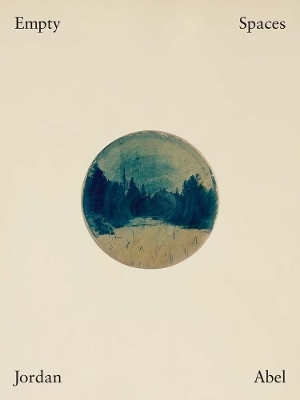
Empty Spaces
Seiten
2024
Yale University Press (Verlag)
978-0-300-27554-4 (ISBN)
Yale University Press (Verlag)
978-0-300-27554-4 (ISBN)
- Lieferbar (Termin unbekannt)
- Portofrei ab CHF 40
- Auch auf Rechnung
- Artikel merken
A hypnotic and mystifying exploration of land and legacy, exploring what it means to be an intergenerational, Indigenous survivor of Residential Schools
A hypnotic and mystifying exploration of land and legacy, investigating what it means to be an intergenerational, Indigenous survivor of Residential Schools
“A singular, incantatory work. . . . The book feels as though forest itself is speaking, sky itself, river itself.”—Nina MacLaughlin, Boston Globe
Jordan Abel’s new work grows out of the groundbreaking visual expression in his recently published NISHGA, a book that combined nonfiction with photography, concrete poetry, and literary inquiry. Whereas NISHGA integrated descriptions of the landscape from James Fenimore Cooper’s settler classic The Last of the Mohicans into visual pieces, Empty Spaces reinscribes those words on the page itself, and in doing so subjects them to bold rewritings.
Reimagining the nineteenth-century text from the contemporary perspective of an urban Nisga’a person whose relationship to land and traditional knowledge and spiritual traditions was severed by colonial violence, Abel attempts to answer his research question of what it means to be Indigenous without access to familial territory. Engaging the land through fiction and metaphor, Abel creates an eerie, looping, and atmospheric rendering of place that evolves despite the violent and reckless histories of North America.
The result is a bold and profound new vision of history that decenters human perception and forgoes Westernized ways of seeing. Rather than turning to characters and dialogue to explore truth, Abel invites us to instead understand that the land knows everything that can and will happen, even as the world lurches toward uncertainty.
A hypnotic and mystifying exploration of land and legacy, investigating what it means to be an intergenerational, Indigenous survivor of Residential Schools
“A singular, incantatory work. . . . The book feels as though forest itself is speaking, sky itself, river itself.”—Nina MacLaughlin, Boston Globe
Jordan Abel’s new work grows out of the groundbreaking visual expression in his recently published NISHGA, a book that combined nonfiction with photography, concrete poetry, and literary inquiry. Whereas NISHGA integrated descriptions of the landscape from James Fenimore Cooper’s settler classic The Last of the Mohicans into visual pieces, Empty Spaces reinscribes those words on the page itself, and in doing so subjects them to bold rewritings.
Reimagining the nineteenth-century text from the contemporary perspective of an urban Nisga’a person whose relationship to land and traditional knowledge and spiritual traditions was severed by colonial violence, Abel attempts to answer his research question of what it means to be Indigenous without access to familial territory. Engaging the land through fiction and metaphor, Abel creates an eerie, looping, and atmospheric rendering of place that evolves despite the violent and reckless histories of North America.
The result is a bold and profound new vision of history that decenters human perception and forgoes Westernized ways of seeing. Rather than turning to characters and dialogue to explore truth, Abel invites us to instead understand that the land knows everything that can and will happen, even as the world lurches toward uncertainty.
Jordan Abel (Nisga’a), an award-winning author, is associate professor in the Department of English and Film Studies at the University of Alberta. He is the author of NISHGA,The Place of Scraps,Un/inhabited, and Injun.
| Erscheinungsdatum | 01.03.2024 |
|---|---|
| Zusatzinfo | 13 b-w illus. |
| Sprache | englisch |
| Maße | 152 x 203 mm |
| Themenwelt | Kunst / Musik / Theater ► Kunstgeschichte / Kunststile |
| Geisteswissenschaften ► Sprach- / Literaturwissenschaft ► Anglistik / Amerikanistik | |
| Geisteswissenschaften ► Sprach- / Literaturwissenschaft ► Literaturwissenschaft | |
| Sozialwissenschaften ► Ethnologie | |
| Sozialwissenschaften ► Pädagogik | |
| Sozialwissenschaften ► Soziologie | |
| ISBN-10 | 0-300-27554-4 / 0300275544 |
| ISBN-13 | 978-0-300-27554-4 / 9780300275544 |
| Zustand | Neuware |
| Haben Sie eine Frage zum Produkt? |
Mehr entdecken
aus dem Bereich
aus dem Bereich
Poetik eines sozialen Urteils
Buch | Hardcover (2023)
De Gruyter (Verlag)
CHF 83,90
Buch | Softcover (2024)
belleville (Verlag)
CHF 27,95


